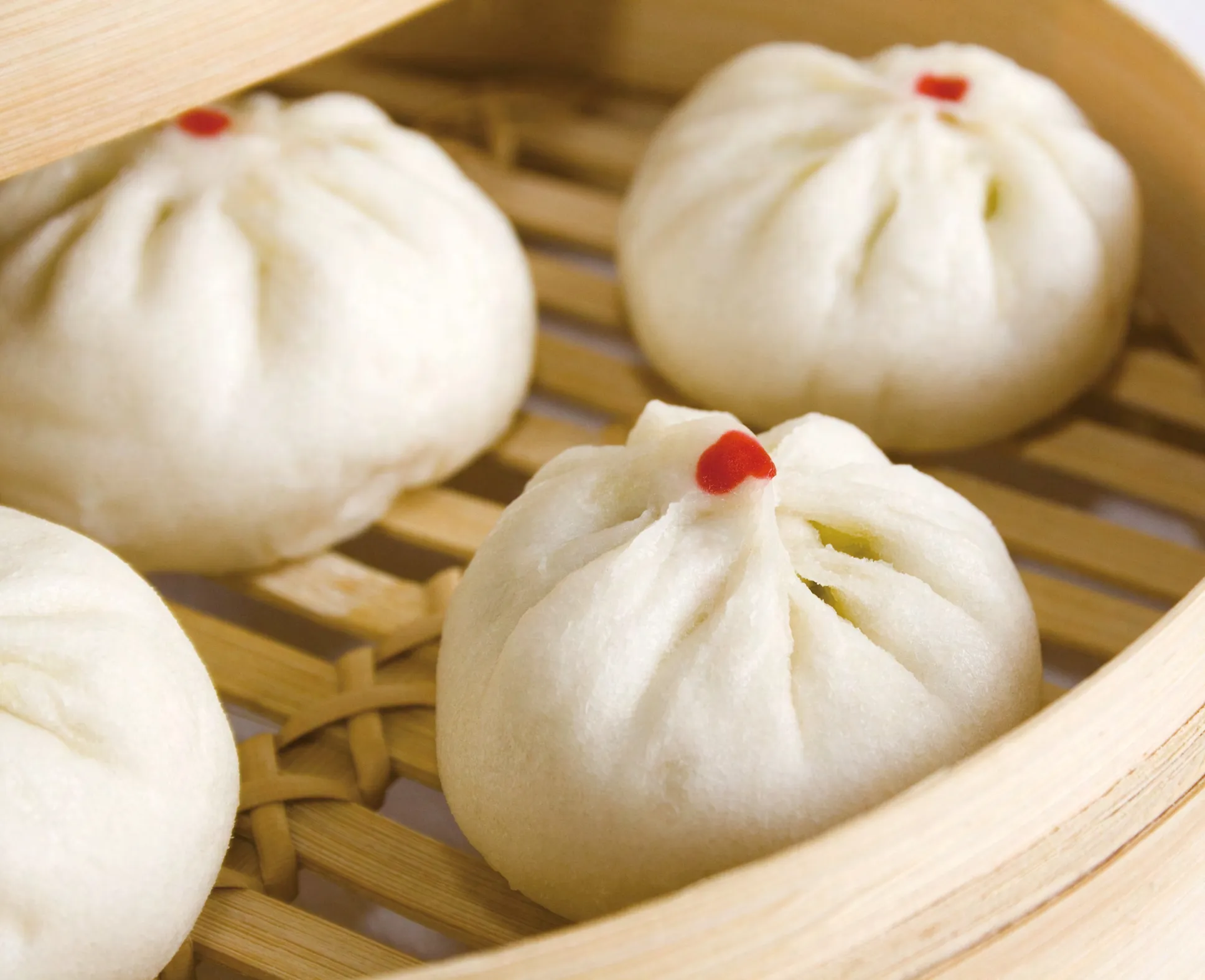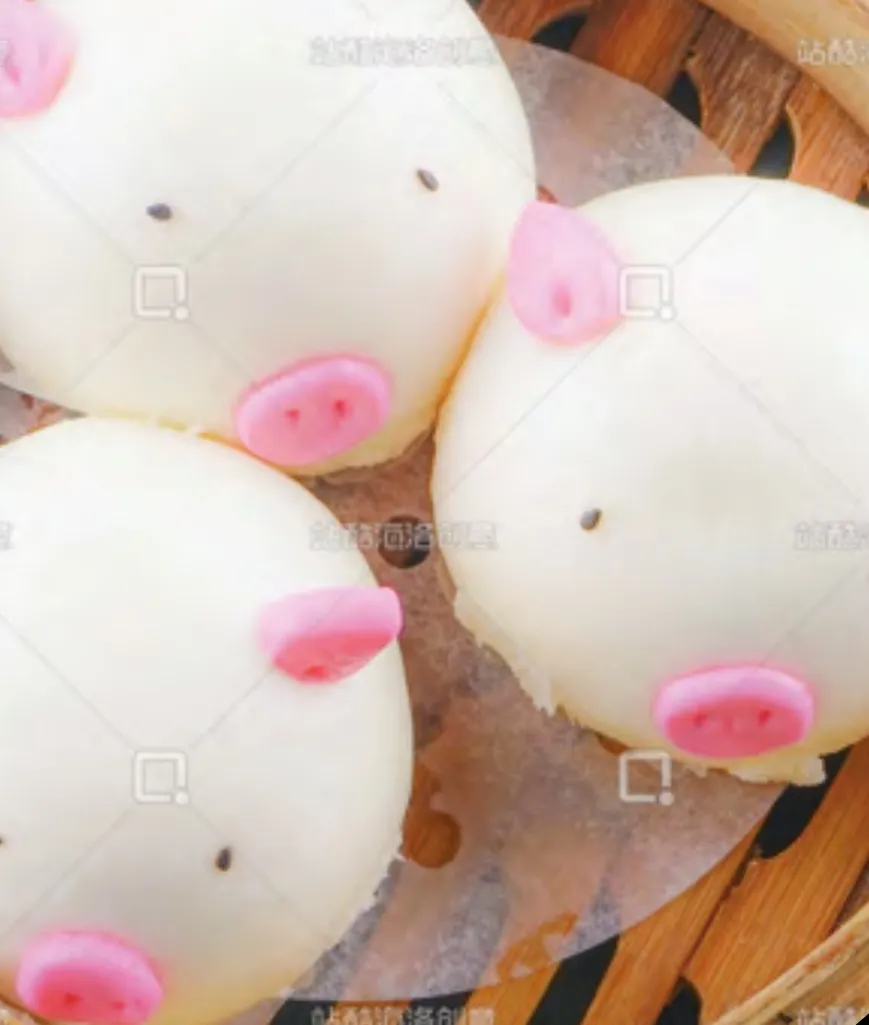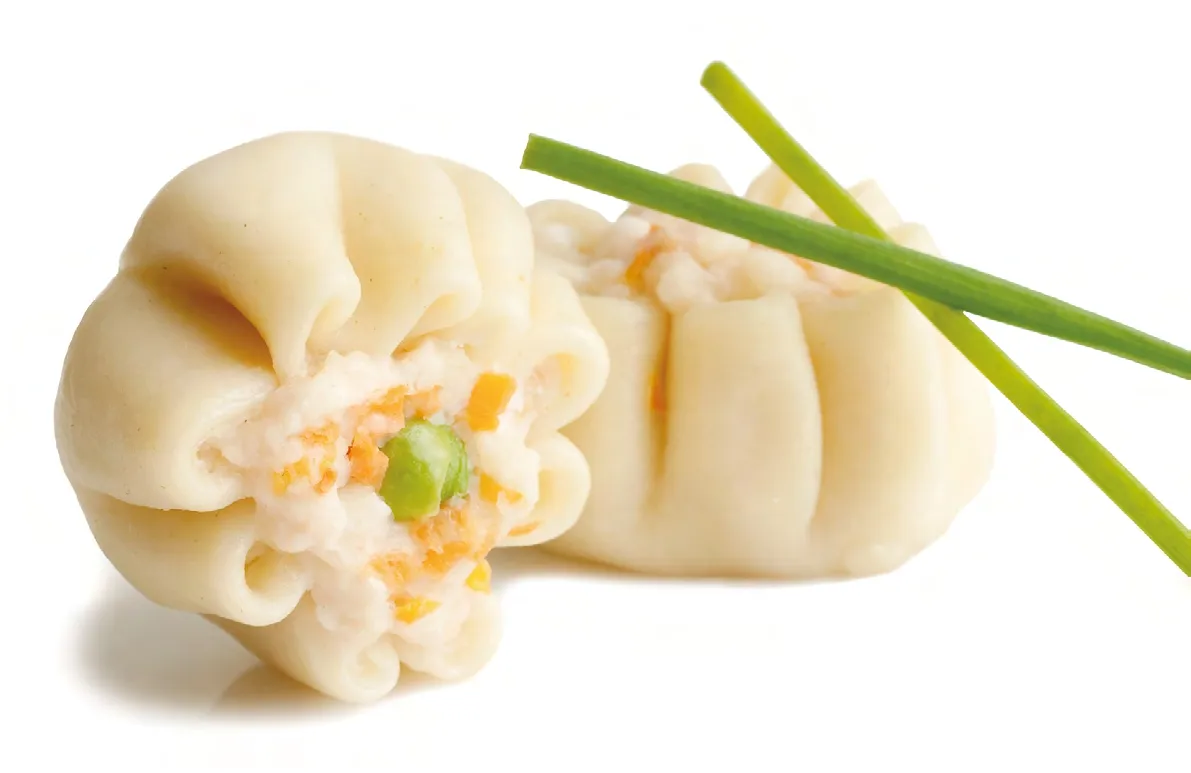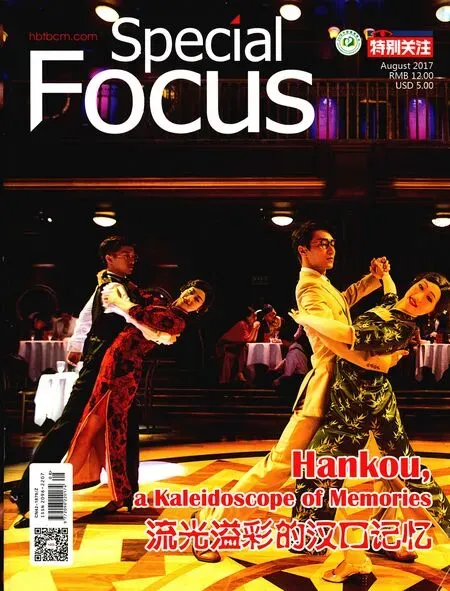On“Bao”
2017-10-10ByFanSu
By Fan Su
On“Bao”
By Fan Su

As elucidated in Shuowen Jiezi (the first dictionary in ancient China,compiled by Xu Shen, a Han Dynasty scholar), the Chinese character “Bao” resembles a pregnant woman. Vitality of human being originates from infant who is born of parents.The etymology of “Bao” is subject to the character component of “Bao” itself.
Since a prominent feature in “Bao” is the character’s resemblance to pregnancy, it was originally defined as “placenta” and extended to be “package”. For instance, the poem “Dead Deer in the Wilds,” Guofeng (Airs of the States),the Shijing (Classic of Songs) states that there is a dead deer in the wilds wrapped up in cogon grass. “Bao” also has another meaning of“contain and tolerance”, Mengxibitan (Brush Talks From Dream Brook by Shen Kuo, a Northern Song Dynasty scientist) explains that numerous peaks of Yandang Mountain are well seated in valleys. According to Shuijingzhu Heshui (Commentary on the Water Classic by Li Daoyuan, a Northern Wei Dynastry geographer),saying river encompassed by mountains flows along, “Bao” means “surround” here.
Transforming into a noun, “Bao” denotes bag,e.g. a school bag or luggage, packaged goods such as a packet of medicine or parcels, and steamed food with stuffing, e.g. vegetarian-filled Baozi & Tang Baozi, which is probably the most popular Chinese cuisine in the world.
Legend has it that “Baozi” (steamed filled bun) emerged during the Northern Song Dynasty, which is verified by Yanyiyanmoulu(the work is mainly about institutions and regulations in Song Dynasty and elaboration to success and failure of reform, by Wang Yong in Song Dynasty), saying “Baozi” are bestowed on civil and military officials to celebrate Emperor Ren Zong’s birthday. “Baozi” is annotated to be entitled “Mantou” (steamed bun) as an alternative name. Nevertheless, it is known to all that the so-called “Maotou” in Northern Song Dynasty refers to fermented steamed stuffed food while the one without stuffing is called “Cuibing”(steamed cake). Up to now, there still prevails the appellation of “pork-filled Baozi,” “vegetarianfilled Baozi,” and “Shengjian mantou” in many areas of Southern China, which are all, in fact, filled with stuffing.

包,《说文》:“象人褢[褢huái ⒈衣袖。 ⒉古同“怀”:“~诚秉忠。”]妊,巳在中,象子未成形也。元气起於子。子,人所生也。……凡包之屬[属(屬)]皆从包。布交切。”包字在古文中像一个人怀胎的样子,所以它的本义为“胎胞”,并由此引申出包裹之意,如《诗经·国风·野有死麕[麕:jūn]》:“野有死麕,白茅包之。”也可指包含、包容,如沈括《梦溪笔谈》“皆包在诸谷中”;或指包围、四面围住,如《水经注·河水》“和水分流,包山而过”。而包字做名词时,通常有这样几个意思:装东西的袋子,如书包、旅行包;包裹起来的东西,如药包、邮包;以及带馅儿的蒸熟的食物,如菜包、汤包——这恐怕也是日常生活中最为我们所熟悉的。
“包子”一词据说出现于北宋时期,王栐[栐,读音yǒng。]《燕翼冶谋录》:“仁宗诞日,赐群臣包子。”包子下注“即馒头别名。”而我们知道,北宋时期的“馒头”就是指发酵的有馅儿的蒸食,没馅儿的称作“炊饼”。至今在中国南方很多地方,依然有“肉馒头” “菜馒头”“生煎馒头”等叫法,其实都是有馅儿的。
南宋耐得翁的《都城纪胜》中记载:“除官库子库脚店之外,其余皆谓之‘拍户’,有茶饭店,谓兼卖食次下酒是也。但要索唤及时食品,知处不然,则酒家亦有单于牌面点选也。包子酒店,谓卖鹅鸭包子、四色兜子、肠血粉羹、鱼子、鱼白之类,此处易为支费。”写临安的包子酒店,专卖鹅鸭肉馅儿的包子,可见当时包子已是非常普遍的一种食物。

It is recorded in Duchengjisheng (the work describes local conditions and customs in the city of Lin An, Southern Song Dynasty, by Nai Deweng in Southern Song Dynasty) that “all are called bistros, except for state-owned hotels and wineshops, private restaurants, and inns. Food served with wine is also for sale in these eateries,where the menu was accessible to whose who were in need of a ready-made meal. Baozi restaurant sometimes sell such specialties such as Eya Baozi,Sise Douzi, Changxuefengeng, Yuzi, and Yubai,which are all in great demand.” As mentioned in Duchengjisheng, one particular Baozi restaurant in Lin An dominated, whose major product was goose& duck meat filled baozi. Apparently, “Baozi” has been widely available since then.
包子作为一种亲民又可口的食物,当然也并非中国独有,在蒙古、日本、越南、菲律宾等受中华文化影响的国家和地区也都能看到包子的身影。
2013年年末,毫无征兆的,包子突然火了,原因是——习大大吃了一顿庆丰包子!12月28日中午,国家主席习近平工作途中在北京庆丰包子铺月坛店吃了一顿午餐,点了二两葱肉包子、一碗炒肝和一份芥菜,共花费21元。此事迅速成为热议话题,网络上的关键词也很快出现“习大大” “庆丰” “猪肉大葱馅包子”“炒肝”“芥菜”“21元”等等,甚至很多人专门去包子铺点同样的“包子套餐”。一时间,全国上下,包子飘香。
有网友说,主席的机智不在于他选择了庆丰包子铺,而在于他没有选择豆腐脑、月饼、粽子、汤圆、饺子、腊八粥、豆浆等一系列可能引发“国家分裂”“人民内战”的“小众”食品,这是一个国家领导人应有的智慧和视野,也是一个国家维持统一的必要物质保证。这条微博从小小的包子就看到了这么多,实在有内涵!话说po主你这么聪明,这么幽默,你家里人知道吗?
包子这事儿还没完。
2014年1月5日,《人民日报》刊文介绍各地的包子,上海南翔小笼、天津狗不理、成都韩包子、沈阳长乐包、武汉鱼香包、广东叉烧包、宜春大包子等等榜上有名。
你以为这样包子的故事就结束了吗?那就太小瞧吃货们了。《人民日报》的榜单一出,网友就开始各抒己见——
身为武汉人表示,鱼香包不过就是把鱼香肉丝填到包子里啊,要我推荐还是汽水包好吃!
沈阳人表示,从来没听说过长乐包这个玩意儿。
在宜春生活了20多年的人表示,什么是宜春大包子?
小笼包明显得从常州、苏州吃起,就连无锡小笼也妥妥排在上海小笼包之前!
……
看,吃货们在吃这件事儿上,可是非常认真的。不难理解,包子并非美食界的翘楚,但它却以自有的朴实家常,穿越千年,温暖着我们的餐桌和肠胃。
(摘自《作文独唱团》2014年3月号)
It is misleading to believe that Baozi, a simple and palatable diet, is unique to China. On the contrary, it is also prevalent in other countries and regions influenced by longstanding ties to Chinese culture in places such as Mongolia, Japan,Vietnam, and the Philippines.
The reason why December of 2013 witnessed the sudden rise in popularity of Baozi is that President Xi ate at the Beijing Qingfeng Baozi Restaurant.At noon of Dec. 28th, President Xi paid 21 yuan for a portion of pork-filled Baozi, fried pork liver,and mustard at Beijing Qingfeng Baozi Restaurant Yuetan Branch on the way to his office, which rapidly got spotlighted. Consequently, key words like “Xi Dada”, “Qingfeng”, “pork-scallion filled Baozi”, “fried pork liver”, “mustard”, and “21 yuan”overwhelmed the Internet. Moreover, a great many people came there specially for the same service.Affection for Baozi instantly spread throughout the nation.
What manifests President Xi’s wisdom is not his choice in the Beijing Qingfeng Baozi Restaurant, but his detour from “niche food” to avoid the potential “civil war” between foods like jellied bean curd, moon cake, zongzi (pyramidshaped dumpling made of glutinous rice wrapped in bamboo or reed leaves), tangyuan( stuffed dumpling made of glutinous rice flour served in soup), jiaozi (Chinese dumpling), laba porridge(rice porridge with beans, nuts and dried fruit,eaten on the eighth day of the twelfth lunar month), and soya milk. This is the intelligence and foresight and perspective that a national leader should possess. Furthermore, baozi also plays a pivotal role in the unification of the country. That is the message from Weibo. We are impressed by netizens’ profound perception of trivial matters like a small baozi. The trending of baozi is to be continued.
On January 5th, 2014, People’s Daily carried the briefing of various Baozi such as Shanghai Xiaolongbao, Tianjin Goubuli Baozi, Chendu Hanbaozi, Shenyang Changlebao, Wuhan Yuxiangbao, Guangdong Chashaobao, and Yichun Dabaozi.
Do you think this brings an end to the story of Baozi? If yes, it seems you underestimate foodies.Netizens came to debunk the honour roll of Baozi in People’s Daily once it was released.
Wuhannese: Yuxiangbao is nothing but filling fish-flavored shredded pork into Baozi. I prefer to Qishuibao.
Shenyangnese: We have never heard of Changlebao; where does that it come from?
Yichunnese: We have lived in Yichun for over two decades, but have no idea what they mean by Yichun Dabaozi.
We can surely embark on a never-ending gastronomic tour of Xiaolongbao from Changzhou and Suzhou, followed by Wuxi, all of which are far beyond Shanghai Xiaolongbao.
…
Travelling across thousands of years, Baozi,distinguished itself as a solid and homely diet.It manages to satisfy and enrich our meals and stomachs, although it fails to stand out in a feast.
(From Essay Party, March 2014.Translation:Huang Lu)
包
文 |樊素

